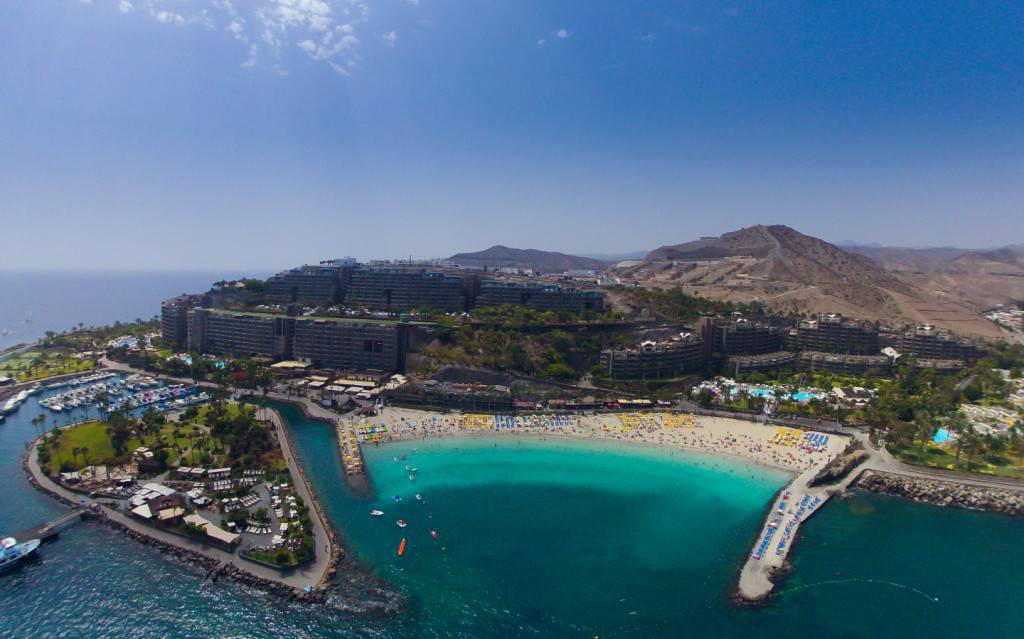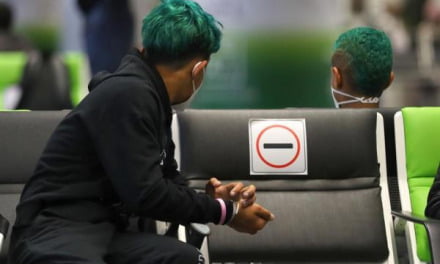Judge Alberto López Villarrubia accepted the request made last year by the company Isla Marina SL. to declare the companies bankrupt. The debtors – part of the Anfi group under the control of the Santana Cazorla Group – have been suspended in their powers of administration and disposition of assets, meaning they are no longer free to make decisions pertaining to those two companies, nor can they dispose of any assets belonging to those companies, powers now assumed by the administrators : Par Conditio SLP.
During the procedure, three expert reports were provided on the financial and business situation of Anfi Sales and Anfi Resorts, made by José Manuel Arias, Sergio Roque and Addvante Forense & Concursal SLP. In summary, handing down his judgement, the magistrate endorsed the latter, which highlighted the lack of liquidity and solvency within the companies. He also referred to the fact that already in 2019 the Anfi Group had requested additional financing from the bank, to refinance the syndicated loan contract that it signed at the time, a request that resulted in a negative response. In conclusion, Addvante Forense & Concursal SLP’s expert report estimated that the unserved debt amounted to €56.6 million at the end of 2019, without without sufficient liquidity to deal with it and without possibility of new financing.
In their reports, the other experts, José Manuel Arias and Sergio Roque, had painted a more positive light on the company finances claiming they were “ideal” based on the assets in hand, but acknowledged that they would inevitably require new lines of credit or the refinancing of the expired syndicated loan.
The judge concluded in any case that the expert opinion presented by Isla Marina – that of Addvante Forense & Concursal SLP – proved bankruptcy, that is, the inability to comply with expired and enforceable obligations. Regarding the argument that the companies own a large amount of real estate, already designated in the judicial executions in process, the magistrate pointed out that this does not serve to prove that the companies are solvent, since the mere fact of handing over its tangible fixed assets shows that there is no capacity to deal with debts in an ordinary way. Moreover, it de facto supposes an early liquidation of assets to enable payment.
Last year the same court declared the necessary bankruptcy of several other Grupo Hermanos Santana Cazorla (HSC) companies which had been dragging various problems of non-payment, delays in payroll and loss of contracts, in some cases leading to halts or complete stoppages of several high profile construction and infrastructure projects on the island. Differences among the shareholders of Hermanos Santana Cazorla exacerbated this problem.
The Anfi Sales and Anfi Resorts’ insolvency declaration aims at avoiding the liquidation of a company, to seek an orderly exit that attends to the payment of any debtors and guarantees, as far as possible, the continuity of a company.
What does this mean for Anfi Group?
Well truth be told, no-one really knows yet. However Isla Marina SL is a company controlled by the Lopesan Group, who own the other 50% of Anfi Group too. For Lopesan there is apparent concern over the fact that Santana Cazorla have a “golden share” which gives them final say on many of the most important aspects of the business and financial decisions, as well as the day-to-day running of the group, somewhat tying the hands of Lopesan in the boardroom, despite the two stake holders being 50/50 owners of the business. The fact that Isla Marina SL bought up much of this existing debt appears to bode well for Anfi, and gives Lopesan much greater influence in protecting their own €43million+ investment.
Anfi is a group of companies, of which Anfi Sales and Anfi Resorts are just two, and so our understanding is that this in no way means the end of Anfi, although it could damage parts of the business, and it may well mean big changes in senior management and business practices regarding how the group is operated.
As the administrators move in, their job will be to try to service the debts and keep the company alive, and there are many ways that might be achieved. One thing we can be sure of is that Lopesan have a large pool of assets available to them, and their group of companies seem to be in good health, so they will likely act vigorously to ensure the continuance of the group and the various resorts they own.
Will this have a negative impact on timeshare owners? There is no way to tell, it all depends on who ends up in control and how well they can stabilise the functioning of the existing company.
One major impact on these companies will have been the millions of euros liability they have been dealing with since a 2015 supreme court ruling against them left the luxury timeshare resort exposed to potentially hundreds of claims wanting to invalidate contracts agreed outside the bounds of the laws regulating timeshare. Since we reported on that there has been a protracted avalanche of unhappy timeshare owners demanding their money back with an extrememly high success rate, the bankrupting of these two companies could well affect any of those litigants who have yet to be heard, or receive their awarded compensation.
More on this as we have it.














